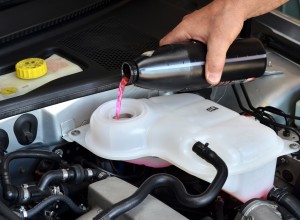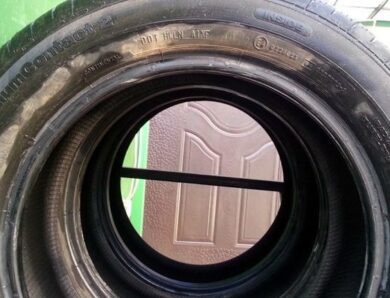Additive to the engine so as not to eat oil and smoke
Let's start with that, that the main purpose of this article is not to promote a brand, which produces car care products. We intend to talk only about that, what are additives in oil (engine), how they work and what results a car owner should expect after using them. In other words, the feasibility of using additives in that case will be questioned, if the engine eats oil and / or smokes.
Today on the market or in car shops it will not be difficult to buy an additive in the engine to reduce oil consumption of various domestic and foreign brands: Come on, Forum, Hi-Gеar, Liqui Moly, Suprotec, Fenom, etc.. d. As for the promising advertising statements of the manufacturers themselves and the feedback of real independent consumers, who have tested additives to reduce oil consumption in the engine, there is no consensus on this issue.
Additive for the engine: so as not to smoke and waste oil
The point is, that only in some cases the additive from smoke and overuse of motor oil helps to achieve appreciable positive results. At the same time, this situation is quite common, when the addition of additives to the oil does not give visible results.
It is also worth noting the group of consumers and experts, which strongly discourage the use of any additives in the motor. In their opinion, such products not only exacerbate existing engine problems, but also add new ones. Let's understand.
Increased oil consumption in the engine and the appearance of blue oil smoke can occur for various reasons. Among the main and most common should be noted:
- unsuitable for this engine engine oil;
- low quality oil or outright forgery;
- wear of the cylinder-piston group;
- occurrence of piston rings;
- problems with oil caps;
- leak seals and other seals;
- oil entering the exhaust system through the turbocharger;
- crankcase ventilation system malfunctions;
- engine oil leak into the engine cooling system;
We also recommend reading the article about it, whether it is possible to mix motor oils. In this article you will learn about the basic properties and compatibility of motor oils.
In the vast majority of these cases (in addition to driving on low quality lubricants) elimination of excess oil requires professional repair of the engine or a separate unit, which is associated with certain financial costs, and often not the smallest. For this reason, many motorists try to troubleshoot the engine without resorting to disassembly and repair.. For this purpose additives in the engine against a smoke and so-called "oil-eater" are immediately bought..
Manufacturers of such solutions promise almost instant effect, which is expressed in the reduction of oil consumption for soot and for other reasons) after using the additive in the engine. The engine stops smoking, starts working quieter, compression rises, fuel consumption decreases and traction appears. In other words, oil additive is a kind of alternative to overhaul of the engine.
The effect is achieved thanks to special components, which are a part of the specified additives: synthetic molybdenum-organic complex in combination with microceramic particles (nanoceramics), improving the adhesive properties of the base engine oil for the formation of a stable protective film on the surfaces of loaded surfaces, rubbing, use of molybdenum disulfide in additives, washing bags, etc.. d.
If you do not go into details, the principle of action of such additives against smoke and oil consumption is often almost the same:
- The main task is to create a strong and resistant to mechanical impact coating on the surfaces of the friction pairs of the engine to protect and reduce wear of parts.
- The second function of additives in the engine is to fill microcracks, scratches and other defects, that allows to restore the nominal sizes of details in the worn out engine.
- Additionally, the oil additive is able to perform the so-called decoking of the engine and piston rings, that is, clean the engine of accumulated deposits and dirt. The result is a reduction in oil consumption, restoration of compression on cylinders, smoke reduction. Let's add, that manufacturers call their composition unique and emphasize it, that only their additive does not change the basic properties of engine oil and does not harm the engine.
We also recommend reading the article about it, What shall I do, if the piston rings are stuck. You will learn from this article, how to decontaminate piston rings with your own hands.
In theory, it sounds very tempting and attractive, especially given the much more affordable cost of such additives compared to any disassembly, mechanical cleaning, defecting and subsequent repair of the motor in traditional ways. Now let's consider, as practice shows.
The benefits and harms for the engine from the use of additives in the engine to reduce oil consumption
Let's start with the positive sides. Repeatedly tested and proven, that additives in the engine are able to protect the engine from wear for some time, that is, to create the same protective layer.
- the additive can be used in that case, if there has been a critical drop in the oil level without the possibility of replenishing or stopping driving (example, the crankcase pallet was punctured on the route and you need to get to the nearest car service on your own).
- also the additive in the engine in some cases is capable to prolong life of the old worn out engine, which is almost impossible to operate properly without repair.
If easier, the additive allows to delay time before overhaul, in parallel allowing the owner not to top up 0.5-1.0 liters of oil each 100-200 km mileage, switch to cheaper oil and thus save money.
Now let's focus on the cons. The main disadvantage of using additives to reduce oil consumption is short-lived (often quite short-lived) positive effect, as well as the unforeseen consequences for the internal combustion engine after the use of such compounds. The latter become apparent after the opening of the engine for overhaul of the engine.
- car mechanics note, that after the use of anti-wear additives, the "insides" of the engine are often covered with a certain layer, which is extremely difficult (and sometimes impossible) to wash.
- there are some statements, that after application of some structures details are not subject to restoration works (grinding, boring, etc.. d.) during engine repair. This means, what are the elements (often expensive) require mandatory replacement.
- engine repair, in which protective solutions or additives were regularly used to reduce oil consumption, usually costs 20-50% more expensive than engines, in which these compounds were not used.
It is worth using smoke additives in the engine
Based on the above information, it becomes apparent, that the additive in the engine to reduce oil consumption creates a certain layer on the internal parts of the power unit, thereby reducing the gaps. Additives are also able to make engine oil thick and reduce its flammability, thereby reducing oil consumption for soot. In other words, the main task has been achieved, but it does not add to the benefits of the engine.
The car engine is such a mechanism, which has a complex device. Great attention in the development is paid to various gaps, temperature regimes, etc.. d. For this reason, each engine manufacturer recommends the use of strictly limited groups of motor oils, which can be used in a specific type of engine. Such oils have certain standards and tolerances, which determine the possibility or impossibility of their use in a motor.
As for additives, then a change in the composition of engine oil in the case of their use is almost inevitable. More, the engine oil itself already has a basic package of additives, reacting with those components, which are included in any third-party oil additive. The logical conclusion is the following:
- the additive is more or less able to solve the problem of oil appetite and engine smoke;
- the positive effect is temporary and not always full, the consequences for the engine are unpredictable;
Let's summarize
As practice shows, use of additives to reduce oil consumption and to keep the engine from smoking, often allows to prolong life of the worn out or problem engine (especially on foreign-made cars) only a few hundred kilometers. We can talk about thousands of kilometers only in that case, if the motor is not brought to a critical state, that is, the problem manifested itself at an early stage.
You should be prepared for this in advance, that after using the additive during the overhaul of the engine may be difficult. The situation is also not uncommon, when it is more expedient to replace the whole engine at once without attempts to restore the already existing unit.
It turns out, the use of additives can be fully justified only if, if the owner does not initially plan to repair the existing engine. In such cases, the additive allows you to operate the car for some time before commissioning. Also for the duration of the additive there is no need to fill the engine with high-quality recommended oil and constant refilling of oil.
Finally, let's add, that no additives will be able to effectively affect the strong consumption of oil in the engine (close 1 liters per 100-150 km. mileage). In this case, the engine must be repaired or completely replaced.




